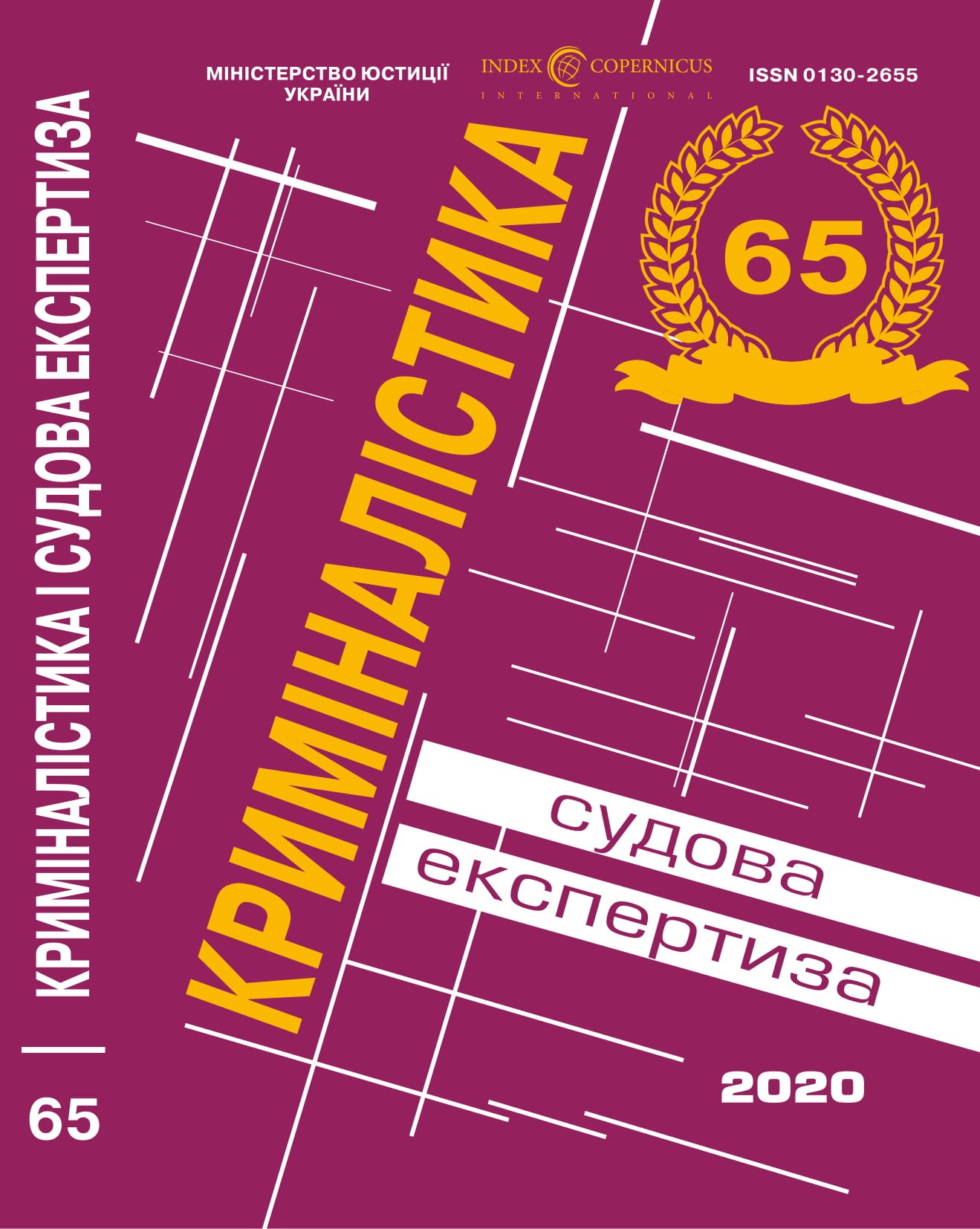
DOI: https://doi.org/10.33994/kndise.2020.65.01
I. Kohutych
The article analyses the problem of framing the place of forensic science in the structure of higher legal education as well as the factors that negatively affect its development, didactic and practical demand. The reasons often indifferent and, in some cases, nihilistic attitudes towards forensic science, its actual manifestations and the probability of at least some localization are given. It is particularly stated that in scientific societies, especially in the constitutional-civil direction, forensic science is perceived in an unjustifiably simplified form. It is a consequence of the dissemination of misinterpreted European approaches to determining the place of forensic science in the system of local law and education; misunderstanding of its role in legal education in general and in law enforcement in particular. It is noticed that some representatives of forensic science act not always adequate, promoting its study in the educational institutions of the system of the Ministry of education and science in a shortened variant. Accordingly, to prepare graduates “…lawyers-general practitioners majoring in “Science of Law” only. They claim that complete knowledge of forensic science is necessary for graduates of departmental higher education institutions only. Obviously, it is unacceptable since it breaks the integrity of forensic science, its traditions, self-sufficiency, and commitment in the preparation of applicants for the legal profession in all areas. Other considerations in the same context are provided and the visions of actions that could foreclose forensic science a secure and demanding future are discussed. At any rate, to make subject component of forensic science’ indifference and nihilism impossible; to prepare appropriate educational materials for teaching forensic science; the authors of research should avoid artificial innovations in their studies, which will awake years of debate and degrade the doctrine of science. Within the framework of the implementation of the dispersed approach to the unification of cognitive capabilities, and therefore to the objectively substantive interests of forensic science – methodologically adequately adjust its definition. To expand the scope of use of forensic science knowledge in a system of science or, leastways, in a system of academic discipline of forensic science – forecast and develop a separate section like “Forensic science out of criminal jurisdictions”.
Key words: forensic science, legal education, professional activity, challenges of forensic linguistics, methods of forensic science formation.










